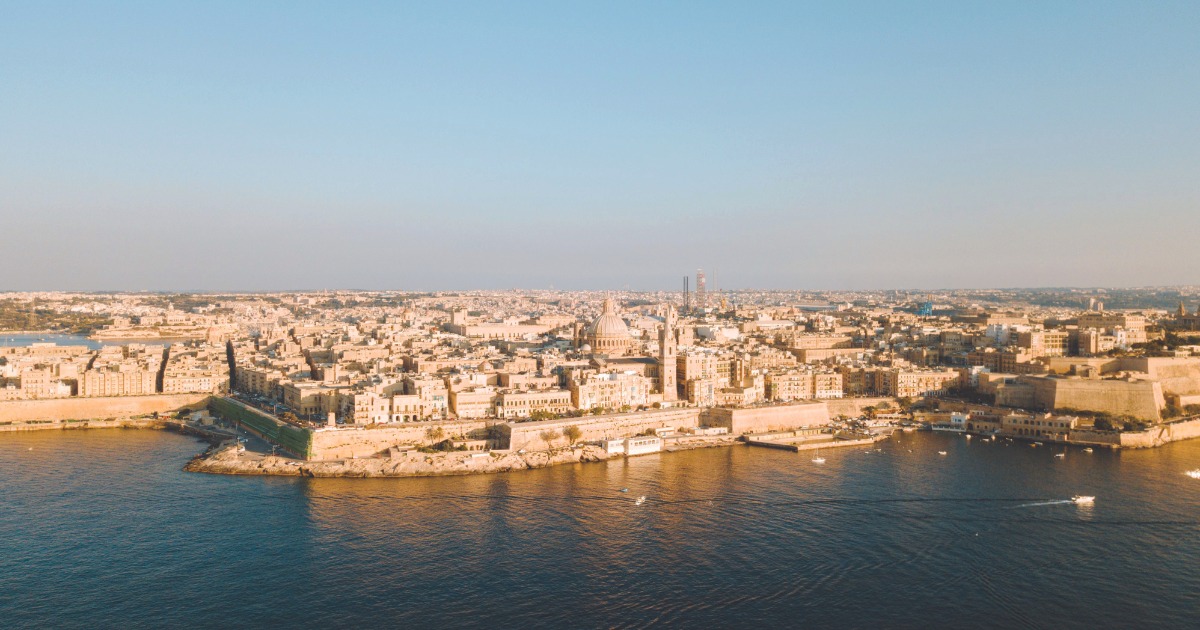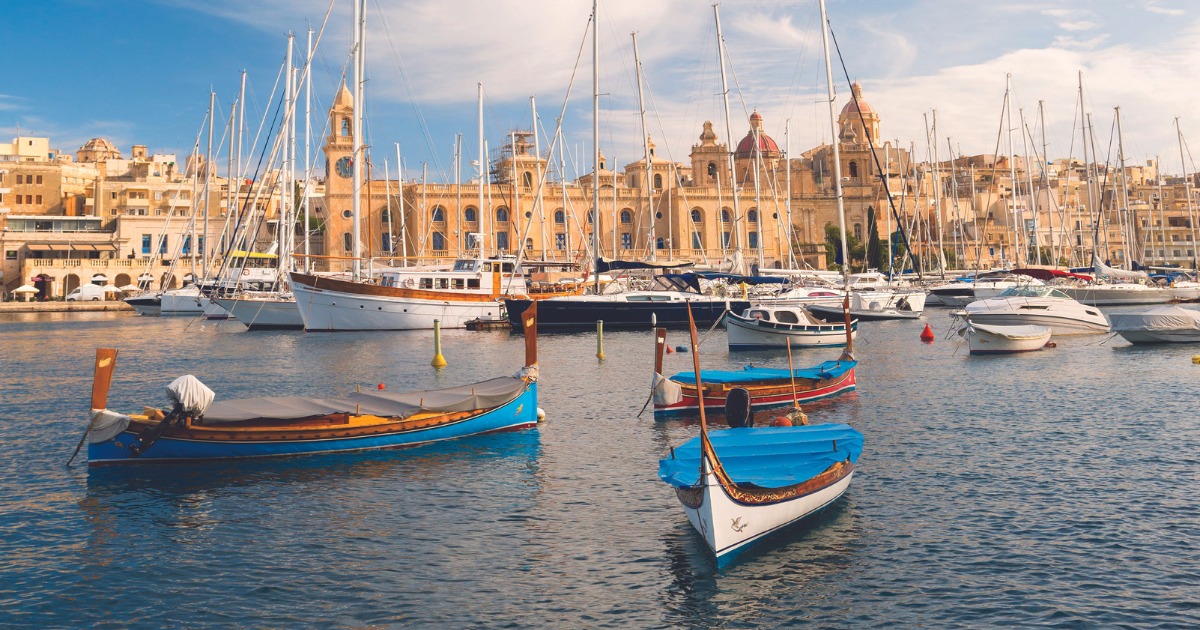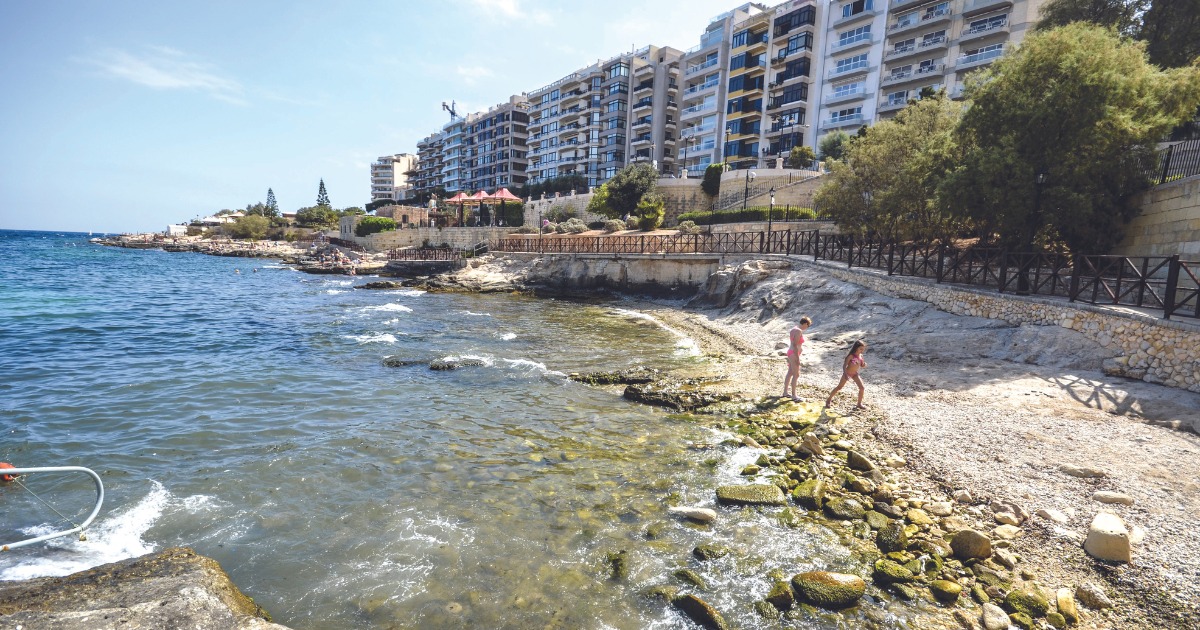Whether you’re searching for a fresh start in life, or simply looking to grow your business, Malta could be the steppingstone you’ve been waiting for.
Since Malta joined the European Union almost 20 years ago, and later adopted the euro, the islands have become a major jurisdiction for business and investment, particularly in the fields of financial services and gaming, as well as shipping and aviation registration.
Over the decades, Malta has also evolved into a trans-continental hub for trade, a popular tourism destination and a top performer in high-tech industries such as high value-added manufacturing, aviation maintenance, financial services and iGaming, cryptocurrency, and Artificial Intelligence. This high-paced activity has attracted an influx of expats, who contribute to render the social and economic landscape truly exciting, diverse and cosmopolitan – could you be the next to join?
Whether you’re searching for a fresh start in life, or simply looking to grow your business, Malta could be the steppingstone you’ve been waiting for. But before you make the move, here are some things you need to know.
All about setting up a business in Malta

With a well-established regulatory environment based on EU law, a favourable tax regime, attractive Government incentives and a well-educated and highly motivated workforce, Malta can be a very attractive place for a foreigner to set up a business. Doing business in Malta does not only mean access to trade in the EU, but also gaining access to Africa and the Middle East, as Malta has developed healthy business ties and beneficial fiscal agreements with various countries in these two regions too. For those who wish to start a business in Malta, there are seven stages to keep in mind:
1. Deciding between self-employment and setting up a limited liability company
A limited liability company gives your business a more trusted face and protects you as a shareholder in case of defective products or law suits. On the other hand, there are more bureaucratic steps to follow when creating such a company (as opposed to starting a business as a self-employed person), such as undergoing an annual audit, so make sure your business is viable before registering it as LTD. You need to be at least two shareholders to register a company.
2. Preparing for registration
If you are going to proceed with a limited liability company, then you need to draft the company’s memorandum and articles of association. These documents are important for registration, but they also detail what the company, its shareholders and its directors can and cannot do. It is important to identify the right legal firm, accountancy and audit firms, as well as business consultants to guide you during this stage.
3. Depositing the minimum share capital
Every company needs some capital to start off, however small. As a new business owner, you need to open a bank account in the company’s name and inform the bank that you are depositing your share capital. The money will go into a holding account until the company is properly registered. The receipt issued will need to be presented in the next stage.
4. Presenting documentation to the Malta Business Registry
The filled-in company registration form, together with the memorandum and articles of association and the share capital deposit slip need to be presented to the Malta Business Registry. Registration is done within two to three days and the registration fee depends on the size of the company.
5. Obtaining licences and a tax identification number
Once the trade name is approved and the memorandum and articles of association are filed with the Malta Business Registry, the company is almost ready to start operating. However, before that, one must also check if any special licences are required. Furthermore, each business in Malta must have a tax identification number. While this is free of charge, once a year you will need to fill in a tax return form. This is another step where the assistance of a trusted accountant, audit or legal firm is invaluable.
6. Getting a VAT number and PE number
You also need to register with the VAT Department to obtain a VAT number. Furthermore, if you have a limited liability company and you intend on hiring personnel, you also need to register as an employer and obtain a PE number. Both steps are free of charge and can be carried out online.
7. Registering with JobsPlus
Jobsplus is responsible for all employment registration in Malta. You need to fill in a form for each employee upon registration, and again upon termination of each employee. The process is quick and free of charge.
Government department Business First can help you with all of these steps, and can be easily reached through their website, www.businessfirst.com.mt, or over email.
Find the right property

Once you’ve decided to move to Malta, you’ll set about finding the perfect property for you and your family, or the new headquarters for your business. But what will that involve?
The cost of living in Malta remains lower than most European countries, but rent has become more expensive in recent years. You can expect to pay at least €800 for a flat in a central part of the island, and far more if it’s in one of the more in-demand locations such as Sliema or St Julian’s. Office or commercial spaces have seen less of a spike in prices, but as with homes, are largely dependent on location.
Most people start their search through a property agency, of which there are countless ones on the island. Some specialise in commercial properties, others in residential. It’s worth noting that many properties are listed with several estate agents, so you may end up viewing the same property several times if you’re not careful.
Once you’ve viewed a few different properties, settled on one that you want to buy, and your offer has been accepted, you will be asked to sign a promise of sale, known in Maltese as a konvenju. This is a legally binding agreement between you and the seller, and will involve a notary public.
At this point you are obliged to pay 1 per cent of the 5 per cent provisional stamp duty. The total sum is payable upon completion of the sale. You will also need to pay a deposit which is usually around 10 per cent of the agreed sale price.
You don’t need a permit to buy a house here unless it’s a secondary residence. But if you are not a citizen of an EU country then you will need an Acquisition of Immovable Property in Malta by Non-Residents Permit (AIP).
You must also obtain a permit if you are considering renting your property as a holiday home, and any earnings must be declared to the authorities for tax purposes.
Where should I live?

While Malta is a tiny island, slow-moving traffic during peak hours, reliance on private cars, and vast differences between one area of the island and another make it necessary to think deeply about what you want from your new hometown. Here’s a guideline of what to expect from different parts of Malta.
Sliema and St. Julian's
The natural choice for most expats. These two towns have a large expat community, an exciting social life, and are close to many businesses and places of work. However, they’re the most expensive addresses in Malta, and if you’re looking for a quiet place to settle down, they’re probably not it.
Valletta
The capital city of Malta has undergone a renaissance in recent years, and it is now one of the most exciting places to be. Most buses end their journey in Valletta, so the public transport situation is excellent. However, be prepared to pay – it’s not cheap. The neighbouring suburb of Floriana may have more reasonably-priced options.
Central towns such as Birkirkara, Attard, and Mosta
These areas are located in the middle of the island and have good transport links to most other towns and villages in the island. Prices are moderate, and they are mostly residential, perfect for raising a family.
Bugibba and Mellieha
Plenty of expats – particularly from the UK – live in these towns. Since both of them can be considered resort towns, it’s worth noting that they get particularly hectic in summer with the influx of tourists, but are much quieter throughout the rest of the year.
Southern areas such as Marsaxlokk, Marsascala, and the Three Cities
The southern part of the island is worth considering if you’d like to live in a charming, traditional village or town. However, fewer expats tend to live here, so if you’re in search of a community of fellow emigres, this may not be for you. Having your own transport becomes essential in this case, and learning at least a few words and phrases in Maltese will endear you to the local, close-knit community.
Gozo
Quiet, peaceful and with plenty of green spaces which Malta is sorely missing, the island of Gozo is accessible via a ferry that leaves Ċirkewwa every 45mins. Since the commute may be tiring to do every day, it’s perfect for retirees, people who are planning to work from home, as well as a holiday residence.
Spotlight on emerging economic sectors

In recent years, Malta has positioned itself as a prime destination for several tech companies looking for a secure, reliable and reputable jurisdiction to base themselves, drawing companies from a wide spectrum of digital and innovative sectors, ranging from blockchain to FinTech to Artificial Intelligence.
Speaking of blockchain, Malta was dubbed as the ‘Blockchain Island’ in 2018, being the first country in the world to issue a comprehensive set of regulations and guidelines on blockchain, Initial Coin Offerings, technology arrangements and financial assets. Today, it is reaping the results of this proactive stance through applications for FinTech and crypto companies to operate from the island, while also widening its scope to attract companies that operate in all corners of the digital space.
Three bills were passed into law in 2018 which set up the Malta Digital Innovation Authority (MDIA) Act, the Innovative Technology Arrangements and Services Act (ITASA) and the Virtual Financial Asset (VFA) Act.
The MDIA acts as a communicator between key national bodies such as the Malta Financial Services Authority (MFSA), other relevant Government regulators such as the Malta Gaming Authority (MGA) and operators. It also regulates new and emerging technologies. The ITASA is geared towards regulating technology service providers, while the VFA Act regulates Virtual Financial Assets. Such laws limit the scope for fraudulent activity, provide certainty to investors and also provide a legitimate legal framework in which operators can do business.
Another economic niche creating significant buzz on the islands is Artificial Intelligence, backed by Government’s vision to put Malta on the map with a National Strategy for AI. This includes discussions on the subject with stakeholders to identify policy, regulatory and fiscal measures aimed at strengthening Malta’s appeal as a hub for foreign investment in this sector. In fact, Government’s strategy has been ranked 10th among 54 countries in the Global AI Index by Tortoise Media, surpassing countries such as Estonia, Sweden and Austria in its drive to adapt and embrace the rapid developments presented by these technologies.
To date, the MDIA has certified five Systems Auditors (SA), the roles of whom are to audit the Innovative Technology Arrangements that an applicant proposes, including those concerning Artificial Intelligence.
Meanwhile, local businesses are starting to make use of AI to trim costs, such as having a chatbot as the first point of contact for customer queries. If you’ve got a healthy risk appetite, investing in AI in Malta in these early stages could ultimately yield excellent results, before competition begins to grow. If you would like to get a better feel for the industry and the network of people within it, keep an eye out for conferences and events on AI that typically take place in Malta between September and November.
A regulatory push for all-things digital makes Esports another niche area with interesting investment options. The number of skilled software developers, graphic designers and IT proficient workers makes Malta an attractive option for investors. And with an exciting enough project, it should not be difficult to find skilled workers to fill the roles.
With the global Esports industry projected to reach a global audience of 646 million people by 2023, it’s no surprise that Malta has opened its doors to Esports companies just as it did with gaming. While still a budding industry locally, Government’s commitment through ‘Malta’s Vision for Video Games Development and Esports’, launched in May 2019, will help propel this sector forward, with plans to grow it from 0.1 per cent to 1 per cent of the islands’ GDP in 10 years.
Tying all this together is the Maltese Government’s plan and commitment to transform the country’s economy into a digital one in the coming years, enhancing ICT policy development and implementation that is intended to meet the expectations of citizens, civil society and businesses – and its efforts are paying off.
In the EU’s 2021 Digital Economy and Society Index (a composite index that summarises relevant indicators on Europe’s digital performance and tracks the evolution of EU member states in digital competitiveness), published last July, Malta ranked sixth among 27 countries for its digital performance, which includes connectivity, human capital, use of internet, integration of digital technology and digital public services. Placing ahead of Estonia, Luxembourg, Austria, Germany, Belgium and many others, Malta is well-positioned to achieve its target of becoming a leader in the digital economy, creating a robust foundation for digital sectors to reap fruit.
This feature was first carried in the May 2022 edition of the Guide Me magazine, the sister brand to GuideMeMalta.com.